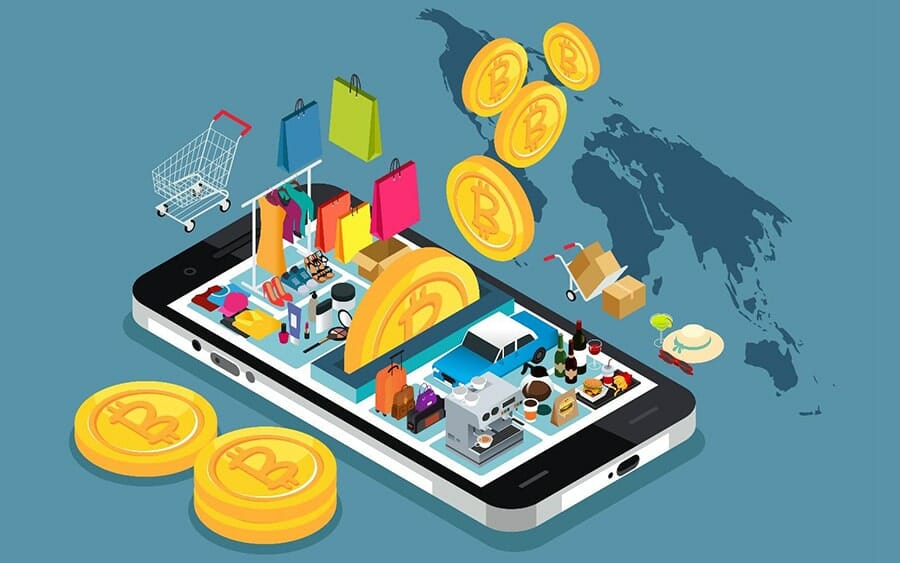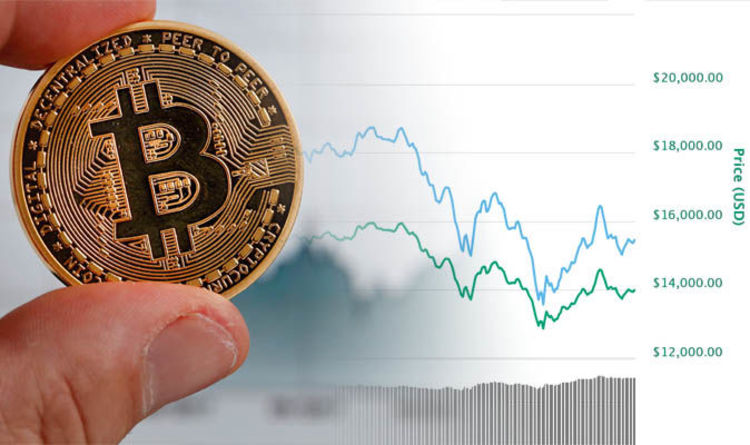With the decentralization of power and the elimination of middlemen, the blockchain revolution is primed to upend e-commerce. Exploring blockchain technology will be interesting and vital given the great prospects that this revolution in e-commerce will present.
The effects of e-commerce and blockchain technology

Crypto will ignite the e-commerce revolution
The amount of disruption that will be wrought in business, retail, and on social media platforms is difficult to fathom:
Manufacturers and sellers will need to enhance their customer experience first because of blockchain technology and the ensuing consumer empowerment. Increased customer insight is necessary for this. What better way to do that than to work together on a blockchain-based platform with customers and other merchants?
Second, blockchain technology runs the risk of rendering any company that acts as a middleman useless. This is particularly true for businesses that are unable to demonstrate how their service offers value. And it's not just obscure organizations that are affected by this. Users may choose to move their friends, clickstream data, and personal information to another network if, for instance, Facebook users genuinely owned the information they gave to the site themselves, depriving Facebook of its crucial ad earnings.
In a future where there are blockchains, all businesses that offer intermediary services must evaluate the value they add to their customers' relationships.
Adverse Impacts from Cryptocurrency

Trust and Security of Blockchain Adoption
Not everyone thinks cryptocurrencies are ready for mainstream e-commerce, despite their popularity in the online retail sector. Before entering the crypto sphere, it is wise to perform some study.
Below, we examine the (bit)coin's negative side:
Price volatility: Both businesses and consumers face anxiety as a result of the wildly fluctuating value of cryptocurrencies. If the value of the cryptocurrency has changed from the time of purchase, things could become very difficult in the event of returns!
Thousands of options: Choosing a digital payment method to accept on your e-commerce website could be a bit of a minefield with thousands of cryptocurrencies accessible and new coins constantly being created.
Trust issues: Although usage is accelerating, the reputation of cryptocurrencies and the blockchain technology that powers them have taken a hit due to unfavorable media coverage. As a result, the public still has a very low level of trust in these electronic payment systems.
Cash flow disruption could result from receiving cryptocurrencies as incoming revenue while paying cash for your expenses (such as paying suppliers and employees).

Cryptocurrency is volatile
These peer-to-peer connections essentially return control to the users. Consider an online shopper who likes to wait to pay for his order until he receives it in the mail, for instance. The money is only transferred to the vendor after he validates the receipt. All of this is carried out automatically by means of computer programmed instructions, or "smart contracts," which take the place of middlemen and save costs while enhancing transparency and reliability. We think that blockchain technology and artificial intelligence will have a big impact on how businesses connect with their customers.
One word of caution

Retailers should be careful when applying Blockchain
Do you need to join the blockchain technology bandwagon right away? Yes, in fact, we fervently urge you to do just that. You won't be able to take advantage of the prospects if you don't investigate them before the technology really takes off. After all, looking into the alternatives will help you identify solutions that others may not have yet considered, providing you a competitive advantage. Despite this, there have been a lot of recent blockchain technology advances in the e-commerce sector. An entrepreneurial mindset is necessary; it is ideal to start small, low-risk trials and progressively scale them up or expand.
As we've seen, in the pursuit of transparency, dependability, and cost savings, e-commerce and blockchain technology open up a wealth of intriguing business prospects. However, it also creates risks, particularly for businesses that don't provide their customers with value. There is no better moment than the present to begin investigating the possibilities of blockchain technology and e-commerce if you want to stay relevant for the consumers of the future.




